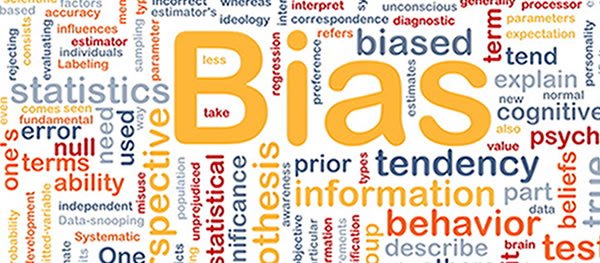Judgments Based Solely on the Accessible and Existing Social Constructs Can Lead to Erroneous Judgment
Judgments Based Solely on the Accessible and Existing Social Constructs Can Lead to Erroneous Judgment

Image Source
The inclination to construct our judgments in light of the availability of social constructs can prompt different blunders in judgment. One such blunder is known as the false consensus bias, the inclination to overestimate the degree to which other individuals hold comparative perspectives to our own. As our own particular convictions are very open to us, we have a tendency to depend on them too intensely when solicited to foresee those from others.
For example, on the off chance that you are agreeable to abortion rights and restricted to capital punishment, at that point you are probably going to imagine that most other individuals share these convictions. Joachim Krueger and his partners gave their research members, who were college students, a personality test. At that point they requested that similar members assess the level of different students in their school who might have addressed the inquiries a similar way that they did.
The students who concurred with the things frequently suspected that others would concur with them as well, though the students who differ ordinarily trusted that others would likewise oppose this idea. A firmly related bias to the false consensus effect is the projection bias, which is the inclination to accept that others share our psychological and full of feeling states.

Image Source
The false consensus effect has likewise been embroiled in the potential reasons for the 2008 financial fall. Considering financial specialist conduct inside its social context, an essential piece of sound basic leadership is the capacity to anticipate other speculators' expectations and practices, as this will predict potential market patterns. Egan, Merkle, and Weber layout how the false consensus effect can lead financial specialists to overestimate the degree to which different speculators share their judgments about the feasible patterns, which can thus lead them to make incorrect forecasts of their conduct, with critical economic results.
False consensus bias does not happen on all measurements. In particular, the false consensus bias isn't normally seen on judgments of constructive personal attributes that we profoundly esteem as imperative. Individuals report that they have better personalities, that they take part in better practices, and that they have brighter prospects than nearly every other person.
These outcomes recommend that despite the fact that much of the time we accept that we are like others, in instances of esteemed personal attributes the objectives of self-concern lead us to see ourselves more emphatically than we see the normal individual. There are some imperative social contrasts here, however, with individuals from collectivist societies regularly demonstrating less of this sort of self-enhancing bias, than those from individualistic societies.

Image Source
Notwithstanding impacting our judgments about ourselves as well as other people, the remarkable quality and openness of data can importantly affect our own feelings and self-esteem. Our enthusiastic responses to occasions are frequently colored by what happened as well as by what may have happened.
On the off chance that we can without much of a stretch envision a result that is superior to anything what really happened, at that point we may encounter pity and frustration, then again, in the event that we can undoubtedly envision that an outcome may have been more awful that what really happened, we might probably encounter joy and fulfillment. The inclination to consider occasions as indicated by what may have been is known as counterfactual thinking. Counterfactual thinking is by all accounts some portion of the human condition and has even been contemplated in various other social settings.

Image Source
References:
The False Consensus Effect: An Egocentric Bias in Social Perception and Attribution Processes
Why We All Stink as Intuitive Psychologists: The False Consensus Effect
The Truly False Consensus Effect: An Ineradicable and Egocentric Bias in Social Perception
False Consensus, Brokerage, and Ethical Decision Making In Organizations
A Simple Theory of the False Consensus Effect
Bridging Decision Research With Happiness Research
The Beliefs of Others
Counterfactual Thinking
Posted from my blog with SteemPress : https://steemme.000webhostapp.com/2018/07/judgments-based-solely-on-the-accessible-and-existing-social-constructs-can-lead-to-erroneous-judgment